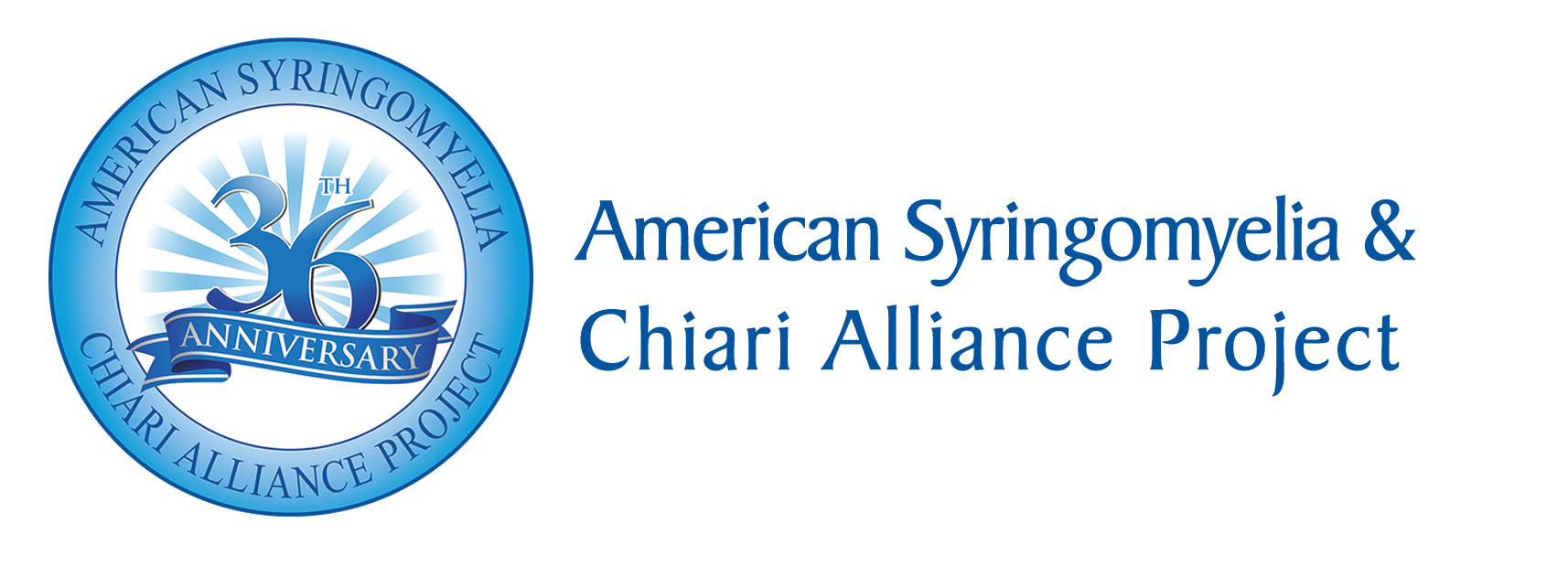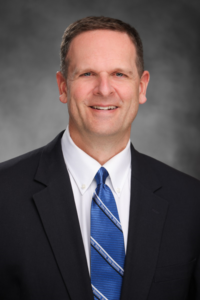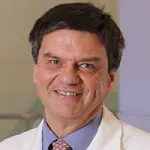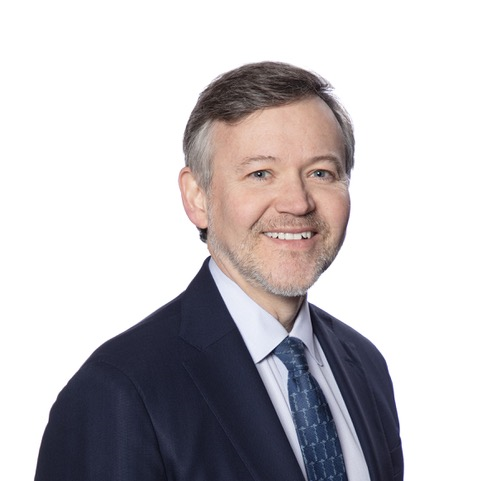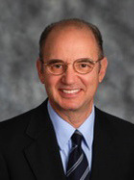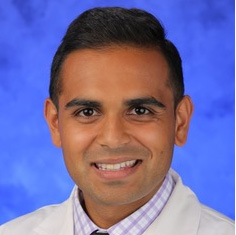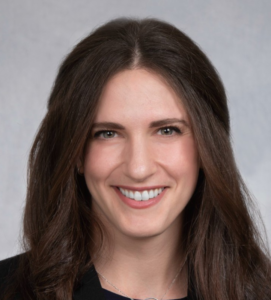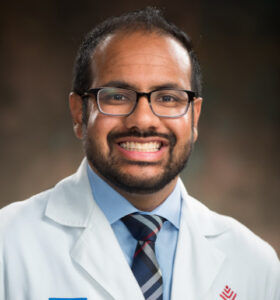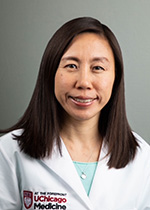(Listed in Alphabetical Order)

numerous publications, including Syringomyelia: Current Concepts in Diagnosis and Treatment published in 1991. Ten years later along with doctors Tamaki and Nagashima of Japan Syringomyelia, Current Concepts in Pathogenesis and Management was published. Dr. Batzdorf’s primary clinical and research focus is on the treatment of Chiari malformation and syringomyelia and spinal cord tumors. He is a coveted speaker on the disorders at medical conferences around the world.

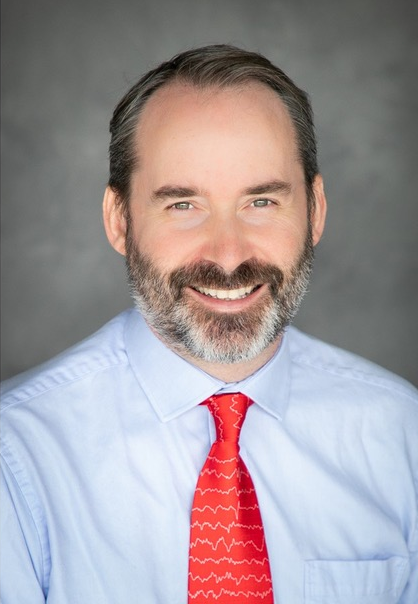 Dr. John Crawford is Division Chief of Child Neurology and Professor of Clinical Pediatrics at CHOC and UC Irvine. He is also Co-Medical Director of the CHOC Neurosciences Institute. Dr. Crawford is board-certified by the American Board of Psychiatry and Neurology in Neurology with Special Qualifications in Child Neurology and by the United Council for Neurology Subspecialties in Neuro-oncology. He graduated from the University of Massachusetts at Amherst with a Bachelor of Science in Biochemistry and a Master’s degree in Biochemistry and Molecular biology. Dr. Crawford attended medical school at the University of Massachusetts at Worcester. Following medical school, he completed his pediatrics training at Los Angeles County/University of California and child neurology and neuro-oncology training at Children’s National Medical Center. Prior to his arrival at CHOC, Dr. Crawford was professor of clinical neurosciences and pediatrics at University of California San Diego and director of neuro-oncology at Rady Children’s Hospital. As prior director of the Child Neurology Fellowship Program and Neuro-Oncology Fellowship Program at UCSD, Dr. Crawford has mentored dozens of neurology and oncology trainees throughout his career. Dr. Crawford’s research interests are in translational pediatric neuro-oncology including molecular-guided approaches to the diagnosis and treatment of pediatric central nervous system tumors.
Dr. John Crawford is Division Chief of Child Neurology and Professor of Clinical Pediatrics at CHOC and UC Irvine. He is also Co-Medical Director of the CHOC Neurosciences Institute. Dr. Crawford is board-certified by the American Board of Psychiatry and Neurology in Neurology with Special Qualifications in Child Neurology and by the United Council for Neurology Subspecialties in Neuro-oncology. He graduated from the University of Massachusetts at Amherst with a Bachelor of Science in Biochemistry and a Master’s degree in Biochemistry and Molecular biology. Dr. Crawford attended medical school at the University of Massachusetts at Worcester. Following medical school, he completed his pediatrics training at Los Angeles County/University of California and child neurology and neuro-oncology training at Children’s National Medical Center. Prior to his arrival at CHOC, Dr. Crawford was professor of clinical neurosciences and pediatrics at University of California San Diego and director of neuro-oncology at Rady Children’s Hospital. As prior director of the Child Neurology Fellowship Program and Neuro-Oncology Fellowship Program at UCSD, Dr. Crawford has mentored dozens of neurology and oncology trainees throughout his career. Dr. Crawford’s research interests are in translational pediatric neuro-oncology including molecular-guided approaches to the diagnosis and treatment of pediatric central nervous system tumors.
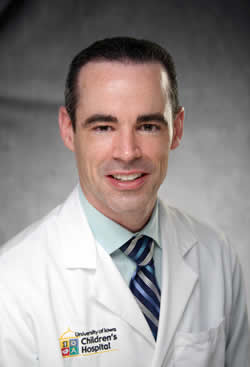 Dr. Dlouhy is a pediatric and adult neurosurgeon at the University of Iowa Hospitals & Clinics and University of Iowa Children’s Hospital in Iowa City, Iowa. He completed his neurosurgery residency at the University of Iowa working extensively under Dr. Arnold Menezes. He now works side by side with Dr. Arnold Menezes treating all disorders of the craniovertebral junction (CVJ) in children and adults. He also has an active research program studying the pathophysiology of Chiari I malformation and other conditions of the CVJ.
Dr. Dlouhy is a pediatric and adult neurosurgeon at the University of Iowa Hospitals & Clinics and University of Iowa Children’s Hospital in Iowa City, Iowa. He completed his neurosurgery residency at the University of Iowa working extensively under Dr. Arnold Menezes. He now works side by side with Dr. Arnold Menezes treating all disorders of the craniovertebral junction (CVJ) in children and adults. He also has an active research program studying the pathophysiology of Chiari I malformation and other conditions of the CVJ.
Gerald Arthur Grant, M.D., an internationally known surgeon-scientist, has been named the new chair of the Department of Neurosurgery at Duke University School of Medicine, effective April 1, 2022.
Grant returns to Duke from Stanford University, where he is currently an endowed professor and chief of pediatric neurosurgery.
In 2006, Grant joined Duke’s faculty as an associate professor in the Department of Surgery after serving in active duty in the United States Air Force. He was deployed to Iraq in support of Operation Iraqi Freedom. He left Duke in 2013 to become chief of pediatric neurosurgery and vice chair of neurosurgery at Stanford. He also serves an Associate Dean of Academic Affairs at Stanford.
“I am thrilled to welcome Dr. Grant back to Duke,” said Mary E. Klotman, M.D., dean of the Duke University School of Medicine. “A preeminent clinician, scientist and educator, Dr. Grant brings experience, knowledge and skills acquired over his distinguished 30-year career to guide our outstanding Neurosurgery Department into the future. His vision, collaborative spirit and leadership will be instrumental in advancing the School of Medicine’s mission of excellence in patient care, discovery, education, and community partnership.”
Grant specializes in treating pediatric and young adults with brain tumors and medically refractory epilepsy. His research focuses on innovative ways to open the blood-brain barrier to improve the delivery of novel drugs and immunotherapy to target brain tumors.
Grant is currently an investigator on several initiatives funded by the National Institutes of Health (NIH) relating to brain tumors, focused ultrasound, brain tumor immunotherapy and concussion. He is an author on 280 peer-reviewed journal articles, holds several leadership positions nationally, and serves on multiple editorial boards in neurosurgery.
Grant received his undergraduate degree in neurosciences at Duke University and his medical degree from Stanford University School of Medicine. He completed his residency in neurosurgery at the University of Washington in Seattle and fellowship in pediatric neurosurgery at Seattle Children’s Hospital.
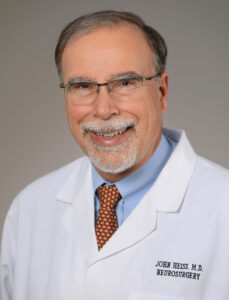 Dr. Heiss is the Chair of the Surgical Neurology Branch and Program Director of the Neurological Surgery Residency Training Program in the NINDS/NIH in Bethesda, Maryland. He is involved in clinical research to improve the treatment of Chiari I malformation, and Syringomyelia. Board certified in neurological surgery, he is expert in the supervision and conduct of clinical trials for CNS disorders. He is Vice-Chair of the Combined Neurosciences Institutional Review Board at the National Institutes of Health and has served on numerous grant review panels. After receiving both his B.S. in Biomedical Sciences and his MD from the University of Michigan, he completed his surgical internship and his residency in neurosurgery at the University Of Cincinnati College Of Medicine.
Dr. Heiss is the Chair of the Surgical Neurology Branch and Program Director of the Neurological Surgery Residency Training Program in the NINDS/NIH in Bethesda, Maryland. He is involved in clinical research to improve the treatment of Chiari I malformation, and Syringomyelia. Board certified in neurological surgery, he is expert in the supervision and conduct of clinical trials for CNS disorders. He is Vice-Chair of the Combined Neurosciences Institutional Review Board at the National Institutes of Health and has served on numerous grant review panels. After receiving both his B.S. in Biomedical Sciences and his MD from the University of Michigan, he completed his surgical internship and his residency in neurosurgery at the University Of Cincinnati College Of Medicine.
https://dir.ninds.nih.gov/ninds/Faculty/Profile/john-heiss.html

brachial plexus reconstruction, and endoscopic surgery for tumors and congenital brain anomalies. His contributions to research includes the introduction of novel imaging techniques aimed at minimizing the radiation exposure of children with hydrocephalus, and
analysis of craniocervical CSF flow in children with Chiari malformation and syringomyelia. Dr. Iskandar has committed a large portion of his time to run a translational research laboratory, in which he studies ways to repair the central nervous system (brain and spinal cord) after injury. This has significant impact on patients with Chiari and syringomyelia, who suffer from motor and sensory dysfunction as well as pain. In his studies, Dr. Iskandar’s group has uncovered a crucial link between the folate pathway, epigenetics, and CNS repair. At ASAP 2017, he will be presenting a review of epigenetics and its role in nervous system diseases.
www.uwhealth.org/findadoctor/profile/bermans-j-iskandar-md/6392

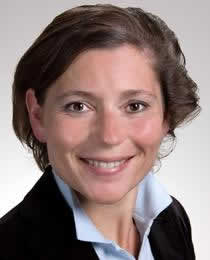 Dr. Klinge is Full Professor of Neurosurgery at The Warren Alpert Medical School of Brown University. She is an internationally renowned clinician for the diagnosis and neurosurgical treatment of patients with hydrocephalus and Alzheimer’s disease. Pediatric
Dr. Klinge is Full Professor of Neurosurgery at The Warren Alpert Medical School of Brown University. She is an internationally renowned clinician for the diagnosis and neurosurgical treatment of patients with hydrocephalus and Alzheimer’s disease. Pediatric
hydrocephalus disorders also comprise another large part of her clinical practice. From her clinical work at the International Neuroscience Institute in Hannover, she has developed outstanding expertise in the diagnosis and management of the most difficult and rare diseases of the nervous system and the spine. In addition to complex adult and pediatric hydrocephalus, her practice also includes patients with associated developmental cerebrospinal fluid disorders, such as spina bifida, tethered cord syndrome, and Chiari malformation as well as both benign and malignant tumors of the brain and skull based surgery.
Emeritus Professor of Neurosurgery, Department of Neurosurgery. David Geffen School of Medicine. University of California, Los Angeles. Clinical and research interest in congenital malformations of the Central Nervous System. Currently, involved in researching the logical processes of deriving inferences about the quality of life for patients with congenital malformation of the nervous system.
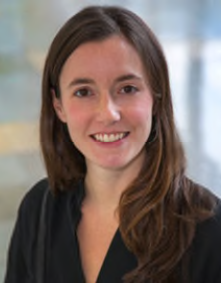 Dr. Kate Lester is a board- certified clinical neuropsychologist and assistant professor of neurology with Global Neurosciences Institute. She specializes in patient behavior and brain function, with a focus on diseases of aging and other general neurological conditions, as well as cognitive difficulties caused by underlying psychiatric disease. Dr. Lester joined GNI in January and serves as director of the Neuropsychology program.
Dr. Kate Lester is a board- certified clinical neuropsychologist and assistant professor of neurology with Global Neurosciences Institute. She specializes in patient behavior and brain function, with a focus on diseases of aging and other general neurological conditions, as well as cognitive difficulties caused by underlying psychiatric disease. Dr. Lester joined GNI in January and serves as director of the Neuropsychology program.
Prior to joining GNI, Dr. Lester served as director of the clinical neuropsychology program and assistant professor of neurology at Drexel University College of Medicine. She has also worked as a neuropsychologist in other hospital based and private practices, as well as in a school district as a contracted school psychologist.
Dr. Lester earned her doctoral degree in clinical psychology from Widener University, with concentrations in neuropsychology and school psychology. While at Widener, she completed predoctoral internship rotations at both Thomas Jefferson University Hospital and the Children’s Hospital of Philadelphia. She subsequently completed a two-year postdoctoral residency at the Medical College of Georgia (now Georgia Regents University). She earned her bachelor’s degree in psychology from the University of Pennsylvania.
Dr. Lester has received numerous honors for her work in neuropsychology, including the Suzanne Reed Price Neuropsychology Award for Distinguished Achievement from Widener University, and the Top 10% Paper Presentation Award from the American Epilepsy Society. She served on the board and as past president of the Philadelphia Neuropsychology Society, where she remains an active member. She is also a member of several national and international associations, including the National Academy of Neuropsychology, the International Neuropsychological Society, and the American Academy of Clinical Neuropsychology. Dr. Lester has been involved in several clinical trials investigating new agents and technologies to improve disease outcomes . She has also presented her work at national and international conferences, and her research has been published in medical journals such as Epilepsy & Behavior, The Journal of the International Neuropsychological Society, and The Clinical Neuropsychologist.
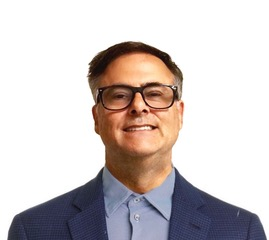 Michael Levy, M.D., Ph.D., is chief of pediatric neurosurgery at Rady Children’s Hospital-San Diego and UC San Diego School of Medicine and a professor at UC San Diego School of Medicine.
Michael Levy, M.D., Ph.D., is chief of pediatric neurosurgery at Rady Children’s Hospital-San Diego and UC San Diego School of Medicine and a professor at UC San Diego School of Medicine.
In 2002, he was recruited to develop a Pediatric Neurosurgical Center of Excellence at Rady Children’s and a pediatric neurosurgical fellowship at UC San Diego. Currently, Dr. Levy is the director of UC San Diego’s Pediatric Neurosurgical Fellowship Training Program and its pediatric neurosurgical international fellowship.
Dr. Levy’s expertise lies in the treatment of complex pediatric brain tumors and cerebrovascular malformations. He is also involved with the design and utilization of endoscopy and three- dimensional imaging technologies to facilitate surgery.
Along with his clinical expertise, Dr. Levy is actively involved in research and is widely published, with more than 200 papers appearing in peer-reviewed literature, seven books and more than 60 book chapters. Additionally, he is currently on the editorial boards of 16 peer-reviewed journals, including Neurosurgery, Journal of Health Communications, World Neurosurgery, Frontiers in Pediatrics and Journal of Neurosurgical Sciences.
Dr. Levy’s professional memberships include the Society of University Neurosurgeons, the American Academy of Neurological Surgery and the American Society of Pediatric Neurosurgery, along with Alpha Omega Alpha (Medical Honor Society), the American College of Surgeons, the American Association of Neurological Surgeons, the Congress of Neurological Surgeons, Joint Section of Pediatric Neurosurgery and the WHO Global Initiative for Emergency and Essential Surgical Care.
When not practicing medicine, Dr. Levy works with the National Football League as an unaffiliated sideline physician and for the NFL Players Association as a surgical consultant.
Michael Levy, M.D., Ph.D., is the host of the 2023 ASAP Conference.
Cormac O. Maher, MD, Botha Chan Professor of Neurosurgery, Stanford University
Chief of Neurosurgery, Lucille Packard Children’s Hospital at Stanford
Cormac O. Maher, MD, has been named pediatric neurosurgery division chief at Stanford Department of Neurosurgery. His appointment started on March 1, 2023.
Dr. Maher’s areas of clinical interest include the surgical treatment of Chiari Malformation, arteriovenous malformations, Moyamoya disease, cavernous malformations, pediatric brain tumors, spinal dysraphism, tethered spinal cord, and hydrocephalus.
“I’m delighted that Cormac Maher has joined the department,” said Michael Lim, MD, chair of neurosurgery. “Dr. Maher is an internationally recognized surgeon with extensive experience in treating children and adults with congenital anomalies such as Chiari Malformation, brain tumors, vascular diseases, and tethered spinal cord. I look forward to seeing our pediatric neurosurgery division thrive under his leadership.”
Dr. Maher attended medical school at Georgetown University. He completed a surgical internship and neurosurgical residency at the Mayo Clinic in Rochester, Minnesota. After residency, he completed a in pediatric neurosurgery fellowship at Boston Children’s Hospital under the direction of R. Michael Scott, M.D. Afterward, he completed a fellowship in cerebrovascular neurosurgery at the Brigham & Women’s Hospital. In 2006, Dr. Maher joined the faculty of the University of Michigan where he served as Professor of neurosurgery, Residency Program Director, and department Vice-Chair for Education.
Dr. Maher has published over 200 articles on a wide variety of neurosurgical topics in scientific journals and medical books. He has made over 230 presentations of his work at national medical meetings. He has served on the editorial board of the Journal of Neurosurgery Publishing Group including a term as co-chair of the editorial board for Journal of Neurosurgery: Pediatrics. He has served as Chair of the Accreditation Council for Pediatric Neurosurgery Fellowships and is a director of the Committee for Advanced Subspecialty Accreditation of the Society for Neurological Surgeons. He is on the executive board of the Pediatric Section of the American Association of Neurological Surgeons.
“Dr. Maher is an accomplished clinician-investigator,” said Dr. Lim. “He is uniquely qualified to further elevate our outstanding pediatric neurosurgery program.”
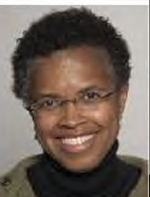
Cormac O. Maher, MD, Botha Chan Professor of Neurosurgery, Stanford University
Chief of Neurosurgery, Lucille Packard Children’s Hospital at Stanford
Cormac O. Maher, MD, has been named pediatric neurosurgery division chief at Stanford Department of Neurosurgery. His appointment started on March 1, 2023.
Dr. Maher’s areas of clinical interest include the surgical treatment of Chiari Malformation, arteriovenous malformations, Moyamoya disease, cavernous malformations, pediatric brain tumors, spinal dysraphism, tethered spinal cord, and hydrocephalus.
“I’m delighted that Cormac Maher has joined the department,” said Michael Lim, MD, chair of neurosurgery. “Dr. Maher is an internationally recognized surgeon with extensive experience in treating children and adults with congenital anomalies such as Chiari Malformation, brain tumors, vascular diseases, and tethered spinal cord. I look forward to seeing our pediatric neurosurgery division thrive under his leadership.”
Dr. Maher attended medical school at Georgetown University. He completed a surgical internship and neurosurgical residency at the Mayo Clinic in Rochester, Minnesota. After residency, he completed a in pediatric neurosurgery fellowship at Boston Children’s Hospital under the direction of R. Michael Scott, M.D. Afterward, he completed a fellowship in cerebrovascular neurosurgery at the Brigham & Women’s Hospital. In 2006, Dr. Maher joined the faculty of the University of Michigan where he served as Professor of neurosurgery, Residency Program Director, and department Vice-Chair for Education.
Dr. Maher has published over 200 articles on a wide variety of neurosurgical topics in scientific journals and medical books. He has made over 230 presentations of his work at national medical meetings. He has served on the editorial board of the Journal of Neurosurgery Publishing Group including a term as co-chair of the editorial board for Journal of Neurosurgery: Pediatrics. He has served as Chair of the Accreditation Council for Pediatric Neurosurgery Fellowships and is a director of the Committee for Advanced Subspecialty Accreditation of the Society for Neurological Surgeons. He is on the executive board of the Pediatric Section of the American Association of Neurological Surgeons.
“Dr. Maher is an accomplished clinician-investigator,” said Dr. Lim. “He is uniquely qualified to further elevate our outstanding pediatric neurosurgery program.”
John Oró MD, AANS Fellow, joined faculty at the University of Missouri (MU) Health Sciences Center in Columbia in 1984 following completion of his neurosurgical training at MU. During his early neurosurgical career, Dr. Oró focused on pediatric neurosurgery, skull base neurosurgery, and cerebrovascular surgery. In 1991, at the age of 40, Dr. Oró became Chief of the Division of Neurosurgery. He became a Professor of Neurosurgery in 1999.
Dr. Oró recruited neurosurgical faculty and supported the development of subspecialty programs in Pediatric Neurosurgery, Skull Base & Cerebrovascular Surgery, Deep Brain Stimulation, Radiosurgery, and Spinal Surgery. He co-founded the Neurosurgery Research Laboratory and performed early research in motor evoked monitoring and magnetic transcranial stimulation. He also contributed to multiple national research trials in neurosurgery. In 1998, Dr. Oró and Diane Mueller, ND, RN FNP-BC, established The Chiari Clinic, a specialty center for the persons with the Chiari I malformation and Syringomyelia.
Vijay A. Patel, MD is a dual-fellowship trained, board-certified adult and pediatric otolaryngologist. Dr. Patel attended the University of California, Los Angeles for his undergraduate degree in Microbiology, Immunology, and Molecular Genetics with Honors Collegium and went on to complete medical school at Penn State College of Medicine. He continued his professional medical education by performing his surgical training in otolaryngology – head and neck surgery at the Penn State Health Milton S. Hershey Medical Center. After residency, Dr. Patel completed a one-year fellowship in Rhinology and Cranial Base Surgery at the University of Pittsburgh Medical Center followed by a one-year fellowship in Complex Pediatric Otolaryngology at Children’s Hospital Los Angeles. He is currently on staff at Rady Children’s Hospital San Diego.
Dr. Patel’s research interests include adult and pediatric cranial base surgery, COVID-19, balloon sinuplasty, sinonasal disorders, adult and pediatric head and neck oncology, surgical outcomes, cost analysis, and quality improvement metrics in surgery. He has over 70 peer-reviewed publications and 50+ regional/national presentations in otolaryngology and is active across several professional expert networks worldwide.
Jillian Plonsker is currently a senior resident in the UCSD department of neurological surgery. She obtained her bachelor of science in neuroscience at the University of Michigan, Ann Arbor, Michigan. She subsequently obtained her MD at Rush University, Chicago, Illinois. Her current surgical interests involve brain tumors and skull base tumors in the pediatric population. She additionally has interests in intra operative brain mapping.
Dr. Vijay Ravindra is a board certified adult and pediatric neurosurgeon and active duty Naval Officer currently stationed at Naval Medical Center San Diego and affiliated with Rady Children’s Hospital. He completed his neurosurgery training at the University of Utah where he worked closely with Dr. Douglas Brockmeyer. He completed his pediatric neurosurgery fellowship at Texas Children’s Hospital – Baylor College of Medicine. His clinical interests include disorders of the pediatric spinal column, in particular the craniocervical junction and scoliosis. He is actively studying tissue properties of the CCJ in children with Chiari malformations.
 Ilene S. Ruhoy, MD, PhD is a board-certified neurologist in private practice in Seattle, WA and the medical director for the Chiari EDS Center at Mt. Sinai South Nassau Hospital. Originally from New York City, she received her MD at the University of Pittsburgh and trained in both pediatric and adult neurology at the University of Washington and Seattle Children’s Hospital with fellowship training in neuromuscular medicine and a focus on mitochondrial disease. She is a graduate of the University of Arizona Integrative Medicine Fellowship. Her PhD is in Environmental Toxicology from the University of Nevada. Dr. Ruhoy is the co-editor of Integrative Neurology, published by Oxford Press in July 2020 and the co-editor of Preventative Neurology issue of Seminar in Neurology to be published by Thieme Medical in November 2022.
Ilene S. Ruhoy, MD, PhD is a board-certified neurologist in private practice in Seattle, WA and the medical director for the Chiari EDS Center at Mt. Sinai South Nassau Hospital. Originally from New York City, she received her MD at the University of Pittsburgh and trained in both pediatric and adult neurology at the University of Washington and Seattle Children’s Hospital with fellowship training in neuromuscular medicine and a focus on mitochondrial disease. She is a graduate of the University of Arizona Integrative Medicine Fellowship. Her PhD is in Environmental Toxicology from the University of Nevada. Dr. Ruhoy is the co-editor of Integrative Neurology, published by Oxford Press in July 2020 and the co-editor of Preventative Neurology issue of Seminar in Neurology to be published by Thieme Medical in November 2022.

A board-certified radiologist/neuroradiologist, Dr. Carina Yang is an Associate Professor of Radiology and serves as the Director of Pediatric Neuroradiology, with a focus on diagnosing and characterizing the full scope of head, brain, spine and neck conditions. Dr. Yang is an expert in interpretation of neuroradiological computerized tomography (CT) and magnetic resonance (MR) examinations, and promotes techniques for pediatric patients to minimize radiation exposure and performing testing without the need for extended sedation.
Dr. Yang was previously a team member for the Margaret Hackett Family Program at the University of Chicago, which aims to collaborate with physicians who advocate for the education and the advancement of knowledge pertaining to the care of patients. She is a newly elected member of the American Syringomyelia & Chiari Alliance Project Board. Dr. Yang is also a collaborating researcher with other pediatric neuroscience clinicians in evaluating topics including noninvasive MR of meningeal lymphatics in patients with craniosynostosis, and the potential relationship of retinopathy of prematurity to posterior reversible encephalopathy syndrome (PRES) in premature infants.
She most recently was selected as a Senior Faculty Scholar in the Bucksbaum Institute for Clinical Excellence. She also has great interest in promoting neuroradiology education to trainees and practicing radiologists on a global arena, with past invited visiting professorships to locations such as Newfoundland, Canada, Hong Kong, as well as Gwalior and New Delhi, India, in part with funding from two University of Chicago Provost’s Global Faculty Awards. She was selected as the 2019 Anne G. Osborn American Society of North America International Outreach Professor to Ethiopia, and most recently traveled to Trinidad for additional volunteer pediatric neuroradiology teaching. She hopes to continue to further her worldwide educational endeavors at new upcoming sites.
